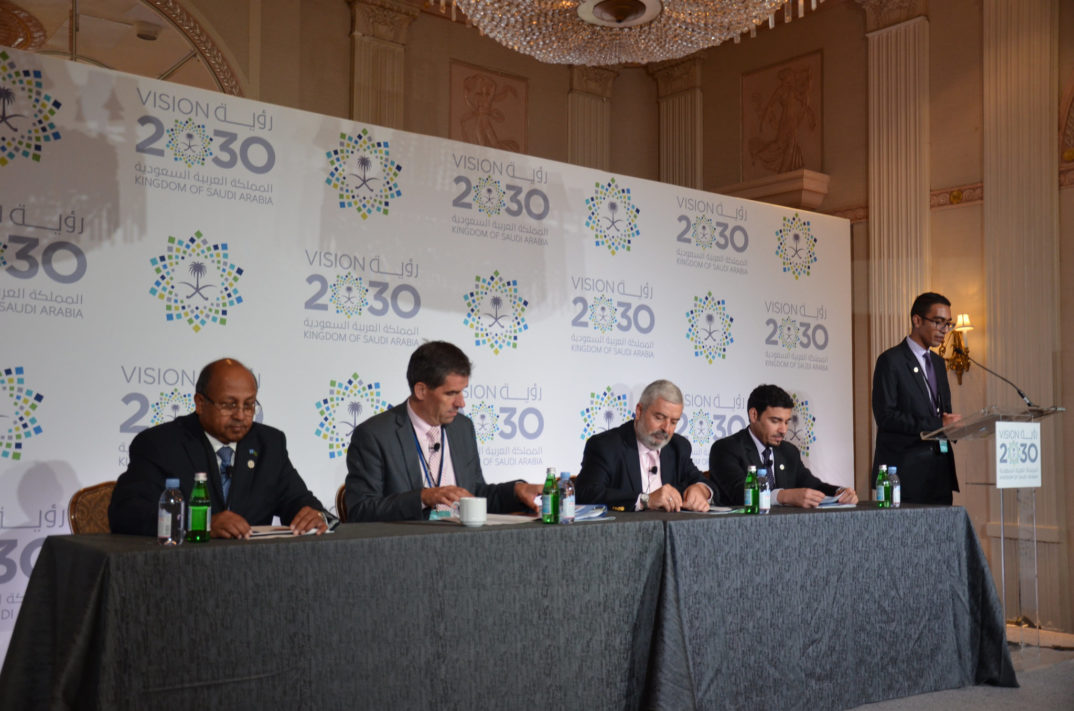This past week, members of the first Qassim Girl’s Council, a provincial group in Saudi Arabia that discusses issues regarding women’s rights within the Qassim region, met publicly to begin discussions on how they can meet certain goals laid out as part of their Vision 2030 program. Despite the seemingly good intentions of a council like this, the photographs from this conference present a different narrative. The dark reality of this meeting can be seen through the photographs of strictly men sitting in on the conferences. The women that were part of the Qassim Girl’s Council were reportedly in another room being connected via video stream, adhering to the strict laws of gender separation outside of familiar ties that is practiced in Saudi Arabia. Photographs of this meeting garnered significantly more attention in the United States after being compared with the photographs of President Donald Trump signing abortion legislation while being surrounded by powerful, white, conservative males. The moral issues presented here cover a host of topics, but the main focus of this issue is whether or not men have the right and/or autonomy to govern the rights of women.
Feminism in 2017: Inclusionary or Exclusive?
At the 2017 Conservative Political Action Conference, Kellyanne Conway revealed that she does not identify as a feminist “in the classical sense.” This seems a bit paradoxical, considering the fact that she was the first woman to ever successfully run a presidential campaign, thereby setting further precedents for what women can do. The Oxford Dictionary defines feminism as the advocacy of women’s rights on the ground of the equality of the sexes, but Conway does not believe that is how the current feminist movement is coming across. During her CPAC appearance, she cited the term “feminism” as having “anti-male and pro-abortion” tendencies.
Continue reading “Feminism in 2017: Inclusionary or Exclusive?”
Hollywood Needs Diverse Directors
Recently, we have seen some upward changes to the Hollywood film industry. For example, six Black actors from four movies were nominated for this year’s Oscar awards, unlike the past two #OscarsSoWhite years. These nominated movies are about, directed by and/or starred by Black people. The 68th Emmy Awards nominees and winners are also a diverse group of actors and actresses. But has the industry really become more inclusive?
Ethics of “Over-the-Counter” Birth Control
Birth control access has been a long debated issue in the United States. Obtaining birth control methods usually means women must go to a doctor’s office in order to obtain a prescription, which can be difficult, for financial reasons or if the hospital is religiously affiliated, for example. On January 1, Oregon’s “over-the-counter” birth control law went into effect, and .
Continue reading “Ethics of “Over-the-Counter” Birth Control”




